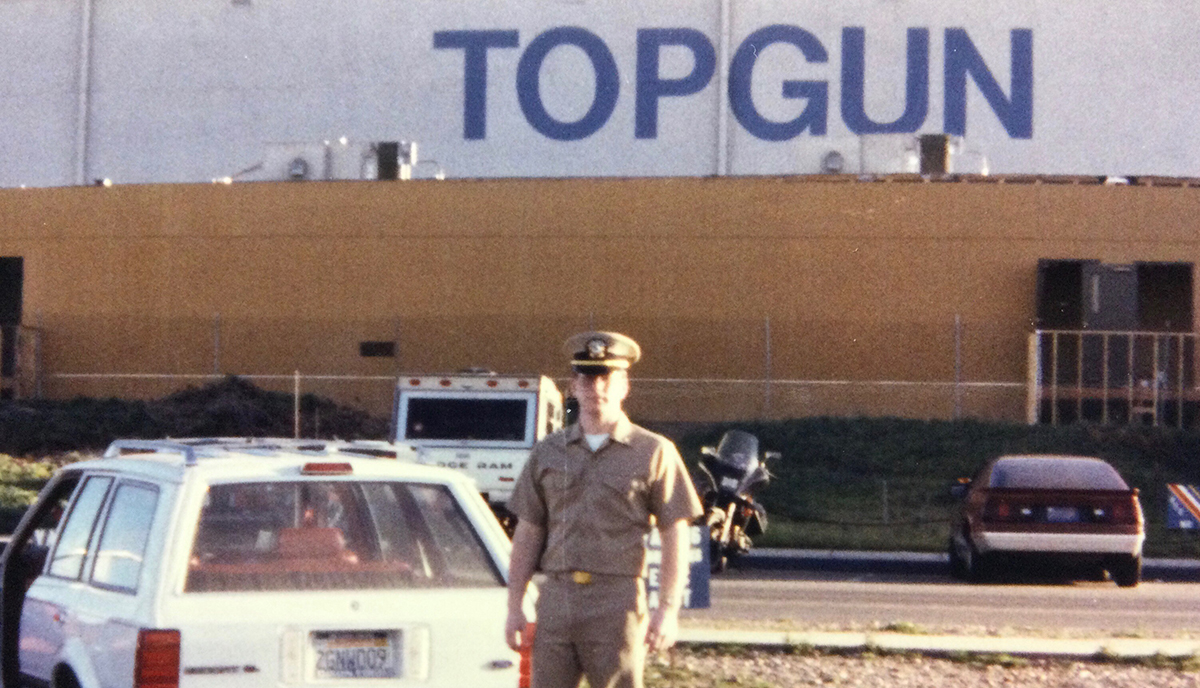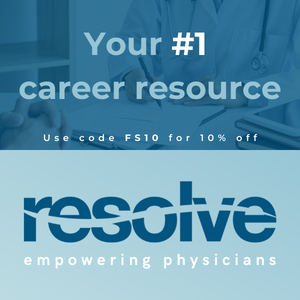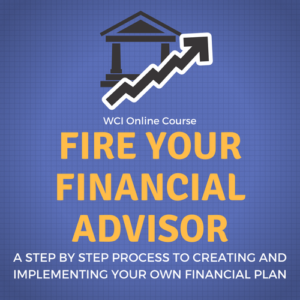(Don’t forget to get your tickets to the PIMD Real Estate Conference coming in September. I hope to meet many of you in person, or you can stay home and enjoy the conference virtually.)
One of the best decisions I made in life was to join the Navy and have the government pay for my medical education. My Naval scholarship paid my medical school expenses and gave me a stipend for food and incidentals. This left me more at ease during my training. That was also a major factor in starting my life as an attending with less than $6,000 of debt. If you read my book The Doctors Guide to Eliminating Debt, you will know that my debt as an attending soon ballooned to half a million dollars. If I hadn’t joined the Navy, my medical school debt would have made that number larger.
I developed atrial fibrillation as an intern and was given a medical discharge from the Navy late in my residency. During officer indoctrination school (OIS) and on annual active duty time, I picked up a few great life lessons. The Naval training we received taught us the skills we needed in life to make us successful Naval Officers. If we simply paid attention to what they taught, we would learn life altering information. Unfortunately, some officers didn’t pay close enough attention. For those who didn’t enjoy the privilege of joining the military, following are the invaluable lessons the Navy taught me.
1: Life is better when I follow the rules
No matter what I do in life, there will be rules to follow. Even the President of the United States has rules that must be followed. There are reasons for having rules since society can’t function without boundaries.
I entered the Navy as a medical officer. My first assignment was to attend OIS where I would learn the rules of being a physician in the Navy. These rules were slightly different from the rules of a civilian physician.
I learned right away that everything is better in life when I follow the rules. But in order to follow the rules, we must first learn the rules. I paid attention to what my superior officer told me. If I followed the rules, life would be smooth sailing. If I didn’t follow the rules, life could get tough and that was totally preventable.
On my first day at OIS I was told to provide a urine sample first thing the next morning for drug screening. That next morning I woke up and found myself on auto pilot. I went to the bathroom and did my business, totally forgetting I was to provide the drug sample. Even though I did not do this intentionally, I had not followed the rules and consequently I didn’t have an enjoyable morning. I will spare you the details, but rest assured I was careful to follow the rules the rest of my stay.
When someone tells me the rules, like properly wear a mask while in this room, I know if I follow those rules, life is always easier.
2: Automate everything I can
The less time I spend working, the more time I can spend playing. Automating things I have to get done will create extra time for fun or productivity.
One frequent thing we did at OIS was uniform inspections. We lined up early in the morning and the officer in charge would walk down the line checking every detail of our uniforms to be sure they met the Navy’s standards. Some people spent a lot of time every morning getting their uniform perfect so they would pass inspection.
I worked hard to get one uniform absolutely perfect on the first day and I wore that uniform to every inspection. After the inspection, I would go back to my room and change into my working uniform. Automating this one thing saved me about a half hour every morning.
Today I automate everything I can, from bill paying to investing, then success no longer depends on my memory.
3: Learn from the past
One of the classes in OIS was Naval history. I wondered about the utility of spending time learning about what happened 200 years ago. I began to see the wisdom as the class progressed. Learning lessons from the past means I can learn from the mistakes of others, without having to make those mistakes myself. In both the Navy and in medicine, those mistakes could cost people their lives.
Why should I waste my time reinventing the wheel, when I can learn from those who have already been down the road I’m traveling? Others have already discovered what works and what doesn’t. I can save a whole lot of time and anguish if I simply stand on the shoulders of those who already paved the way.
Applying this to investing, I have learned about the past results of manias and fads, so now I can spot them when they come across my path, and I don’t have to fall into their trap. Heed the lessons from the past.
4: No one likes a slouch
When I left for OIS I flew in an airplane across the country from Oregon to Rhode Island. As a medical student who worked long hours, I used the time in the air to catch up on my sleep. When I arrived, I couldn’t move my neck! Apparently, sleeping in an airplane seat can be detrimental to neck health.
The first thing I did upon arriving was report to the emergency department of the Naval hospital for help. They prescribed medication, exercises, and one week of no physical activity until I came back for my follow up visit.
I’m sure you can imagine the response I received when I reported to my commanding officer with a doctor’s note saying I didn’t have to do any of the physical events they had planned for the first week. I sat on the sidelines while everyone else did all the work and gave me the evil eye.
In a few days my neck was back to normal, and I was doing everything everyone else did, but the damage to my reputation was already done. I was thought of as a lazy slouch. First impressions are hard to overcome.
I learned to always pull my load and do my best. Others are depending on me to pull my weight.
5: Who I bunk with matters
“You are the average of the five people you spend the most time with.” – Jim Rohn
I spent a great deal of time with the person that shared my room. We talked late into the night and had a lot of influence on each other. The character of that person is very important since it rubs off on me.
I had a partner who liked to say, “Some people are good in a foxhole.” The gist of this is when the going gets tough, those people have your back. Those are the people who should be in my life.
I learned to be careful who I spent time with for they have a big influence in my life.
6: Enjoy my time off
Life in the Navy can be very taxing, just like it is for civilian physicians. When I was given “shore leave,” also known as time off, I wanted to use it well. After getting run down at work, we all need time to recharge our batteries, so we can return to work ready for action.
I find that many physicians don’t give themselves permission to take time off to recharge and have fun. They become all work and no play. Many have never taken more than one week off at any time. Some don’t even use all their allotted vacation time each year.
With burnout so prevalent in our profession, skipping vacations can be devastating for not only our health but also our career. We should enjoy our time off and take as much of it as we can. While I was in practice, I took 8-12 weeks off every year. Since my time off lowered my production and my income, I set up my life to need less income so I could take the time off I needed to stay recharged. It take sufficient time off to keep work enjoyable.
I hope you take these lessons to heart. Learn your lessons from others so you don’t repeat the same mistakes they made.






I met life long friends and colleagues at OIS back in the day. I still remember the classes in the pool where they showed you how to make floatation devices out of your clothes. Also, with my negative buoyancy, I barely passed treading water for 5 minutes, too. The weekend trips to Boston on liberty were also memorable. Thanks for opening up the military scrapbook.